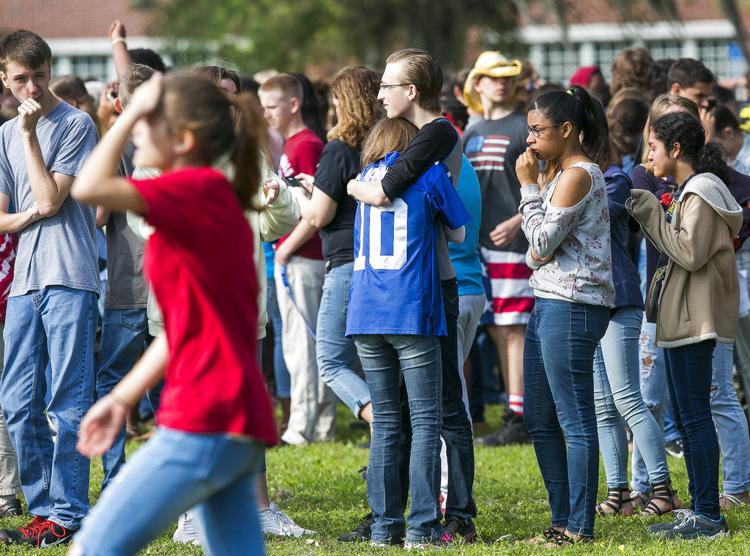
“What is this place?” I said, trying to rub the sleep out of my eyes. That was no easy thing to do, as I’d been in a coma for twenty years, or so they told me. My guide was a young man dressed all in white, with teeth that flashed. Where had I seen that white before? It wasn’t snow. It was something else, but I couldn’t remember.
“Don’t you know, Mr. Winkle? You used to work here.”
"Please understand that we hold the Constitution in high regard....The lavatories in the Capitol building have their toilet paper embossed with it, so that members of Congress can bestow upon it in private that same honor they bestow upon it in public.”
The edifice was built in the manner of a Greek temple, with dressed marble blocks, each weighing many tons, and graceful pillars in the portico, surmounted with Corinthian capitals. Bulging out from the pediment—how did I know that word?—stood something new, a great gray sculpture in formed concrete. It was of a woman, holding a balance. She wore a patch over her right eye, while with the left she half-winked toward one side of the scales, tipped a little lower than the other. Her lips were pursed, as if she were blowing upon a spoon of hot soup. Altogether she looked like a lady pirate handling the spoils.
“That woman is the goddess Astraea,” I muttered. “At least I think so.”
“Is she really?” said my guide. “What albums did she cut? You did say she was a diva,” he added, when he saw me hesitate.
“No, no, I meant a goddess. The Greeks believed that the goddess of justice, Astraea, fled from the earth after she grew disgusted with the ways of men. She’s in the sky, the constellation Virgo. Libra is her scales.”
“I’m sorry, sir,” he said cheerfully, with a toss of the lovelock hanging from his forehead. “The only Greek I know makes lamb sandwiches at the deli. Besides, I was told that she was modeled after our First Governess.”
“Your first teacher of little children?”
“How strange you are,” he laughed. “I guess that’s what it is to be asleep for so long. Come on, let’s go inside. We don’t want to miss the sacrament.”
I had no idea what he meant, but I nodded anyway, and we entered a great auditorium, rather like a church built in the round. It was filled with people enacting the most remarkable theater, or a hundred theaters, since each actor seemed to be oblivious to every other. One man stood on a pedestal of old books, crying out, “We hold these terr-oothes, these terr-oothes to be self-evident!” Others howled like dogs or shivered and shook as they skipped across the floor. An immensely fat woman, stripped to the waist, cupped her breasts in the crooks of her elbows and cried, “Unsex me here, you murdering ministers!” One dingy fellow wearing nothing but a mortarboard and thick glasses, squatting on the floor, inserted his index finger into his anus, pulled it out, inspected it by various sensory means, and muttered, “Two percent, within the margin of error.”
It came to me then. “Why, this is the Supreme Court Royal!”
“Over the Undifferentiated Masses,” said my guide.
“Quite,” said I, and then I saw the Nine Archons of the Court, sitting in the sanctuary, each one with a piece of paper apparently pasted to his forehead. There were four men, four women, and something else—I couldn’t tell straightaway. The justices had their eyes shut. Some of them sat lotus-legged, with palms upturned. I heard a drone, something like ommmmm.
“They are determining whether some new law is constitutional,” I said, feeling a little more at home. It was good to know that at least a few of the old hallowed traditions had endured.
“See, everything is coming back to you,” said my guide with a hearty good will. “But look a little more closely at those pieces of paper. They are blank, you know.”
“Blank on the outside,” I said, “but the law will be written on the inside, the better to penetrate the skull and enter the brain. You are not,” I said, raising myself on my toes a little and glancing aside at the young man, “dealing with someone entirely unacquainted with jurisprudence.”
“Of course not!” he laughed again. “But change,” he said, “all our hope lies in change, don’t you see? Do be hopey-changey, don’t be oldie-dopey. We learned that in kindergarten. I majored in it. So,” he said, with a brilliant smile, “if you would be so good as to take the paper from that old duffer’s head, you will see what improvement we have made since your time.”
“Titanium dioxide!” I cried.
“Excuse me?”
“The white pigment for Frosty-Freeze doughnuts. Oh, I’m sorry, my mind is a bit jumpy. What did you want me to do again?”
“That’s all right, no problem. Take the paper from that justice’s forehead. He’s half-drowned in opium anyway, as everybody knows. He won’t miss it.”
I did as I was bidden. “This paper is blank on both sides.”
“Sure!” he said. “We have progressed from close study, to modest reading, to a cursory glance, to nothing at all. It saves a lot of space. You should see our libraries.”
“But then how do the justices even pretend to rule upon it?”
“Emanations,” he said. “It’s kind of a legal string theory. You see, there are umbras and penumbras all around us, cultural shades, historical vectors, vibrations and pulsations of progress, the ghost-whispers of indigenous peoples who are close to whatsit, nature, Van Allen belts, bisons and bosons, inclusions and intersections and black holes and wormholes, singularities and pluralities and the far-flung Isles of Langerhans. And therefore, when the justices rule, the Constitution takes a quantum leap, and we get a new Constitution, which was the same Constitution. But in another universe it would have been the opposite decision, and we’d have gotten a different new Constitution, which would also have been the same Constitution. There is no Constitution until the Court Royal rules, and then—ping! It comes into existence, just like that, all round and shiny, like a brand new proton. It’s science.”
“I know about all that,” I said, “but still…” I was about to mount some resistance. Yet I gave it up. I had to admit, it was hard in the old days to keep up appearances. No doubt the new system worked very well. “What law are they meditating upon?”
“It’s the most significant piece of legislation since you fell into your coma,” said my sunny-tempered guide. “It has reach. You see, we cannot save the planet unless we put strict controls upon the use of fresh water. So the Congress has passed a law mandating that every citizen install a Smart Commode in each of his bathrooms. The Amish, naturally, are exempt.”
“Naturally. But what is a—what did you call it?”
“A Smart Commode. Yes. The Smart Commode films what you are doing, and sends a report to an Elimination Evaluation Drone, as to how many flushes per kilo of solids or liter of liquids, how many squares of standard two-ply tissue, and suchlike. It was a close call. The radical feminists were threatening to withdraw their support, because they wanted an amendment requiring all males to sit down to tinkle, but as no agreement could be reached as to what ‘male’ means, and since, to be candid, most men these days sit down anyhow, they gave in. It was an important triumph for conservative values. The Germans have their Sitzpinklergesetz, but we Americans still believe in freedom.”
“Now, wait,” I said. “You are requiring that every citizen do—do—do—” I stammered, but he finished my sentence for me.
“Yes, we are requiring it. There’s precedent, after all. The Constitution. Please understand that we hold the Constitution in high regard.” His voice took on a hush, as when you whisper a prayer in your pew before Mass. “The lavatories in the Capitol building have their toilet paper embossed with it, so that members of Congress can bestow upon it in private that same honor they bestow upon it in public.”
“That would be an improvement,” I said, “but still, you do need at least some excuse. Conservatives must insist upon it. An excuse must be found.”
“Interstate commerce,” he said.
“Of course!” I cried, again thinking that maybe I had come home indeed. “John Doe, let us say, moves his bowels in south Pittsburgh, as he is sometimes known to do. His donation enters the Monongahela River, which soon joins the Allegheny to form the mighty Ohio. From that great confluence on, Mr. Doe is contributing to the general environmental welfare or the general environmental harm of every state touched by the Ohio—West Virginia, Ohio, Kentucky, Indiana, and Illinois, until that Doe-laden river clears the swamps of Cairo and enters the Mississippi, influencing, literally influencing Missouri, Arkansas, Tennessee, Mississippi, and Louisiana. Why,” I said, winding up in peroration, “why should the beleaguered people of New Orleans, people of color most of them, be the mere abjects of the white man Doe and his not so spotless effluvia? Where is the justice? What of the common good? What of the planet, our little spaceship earth?”
“Excellent,” said my guide, clapping his hands. “You are recovering from your long sleep. Your mind is beginning to clear. That in fact was just how the proponents of the bill were going to push it. But you have forgotten one thing.”
“I’m not surprised,” I said. “I’ve missed twenty years of legal journals.”
“Goodness no, not those,” he said. “I mean that your John Doe doesn’t cover all the possibilities.”
“Wait, wait a minute. I see. I get it. Mary Roe lives in International Falls, Minnesota. After a night of Mexican food and loose living, she flushes out her system and the excreta enter the Rainy River. They then flow into the Lake of the Woods, then north into Manitoba, Lake Winnipeg, the Nelson River, and Hudson Bay—assuming that they don’t freeze en route, or go toward the nourishment of certain species of northern pike. In this case,” I said, adopting the serious air of a jurist saddened to find that the flow of progress has been interrupted momentarily, as a river by a large stone in its bed, “interstate commerce will not apply.”
“No,” said my stripling guide, beaming. “But something else would.”
“International relations!”
“Exactly.”
“The United Nations.”
“Exactly.”
“Nothing new for them,” I said, thinking of their banquets of pate de foie gras, coquilles Saint-Jacques, and crepes Suzettes. “It is their métier, their raison d’etre.”
“It’s been that way from the start.”
“O brave new world! But tell me, what happens if some fussbudget uses too much paper? Are there any punishments written into the law?”
“What would a law be without teeth?” said he, flashing them.
“But then, how could you tell whom to punish? Surely you can’t isolate the matter and examine the DNA. That would be much too expensive.”
“Can’t you guess? We got this one from our good friends the Chinese.”
“Facial recognition software?”
“Well, facial—as it were.”
“How beauteous mankind is! Then you’ve solved the surveillance problem a posteriori.”
“Yes, we have. Each one, unique as a fingerprint. Hairs, pores, moles, fatty deposits, veinous seams, piles. We had been going to do the scanning a priori, but that would have lost us the support of white academic men on the left, for reasons I need not mention.”
And at that moment I, John, heard a great humming among the high priests in the Temple, and they rose, all nine, to deliver their sentence to a people truly blessed and free.

